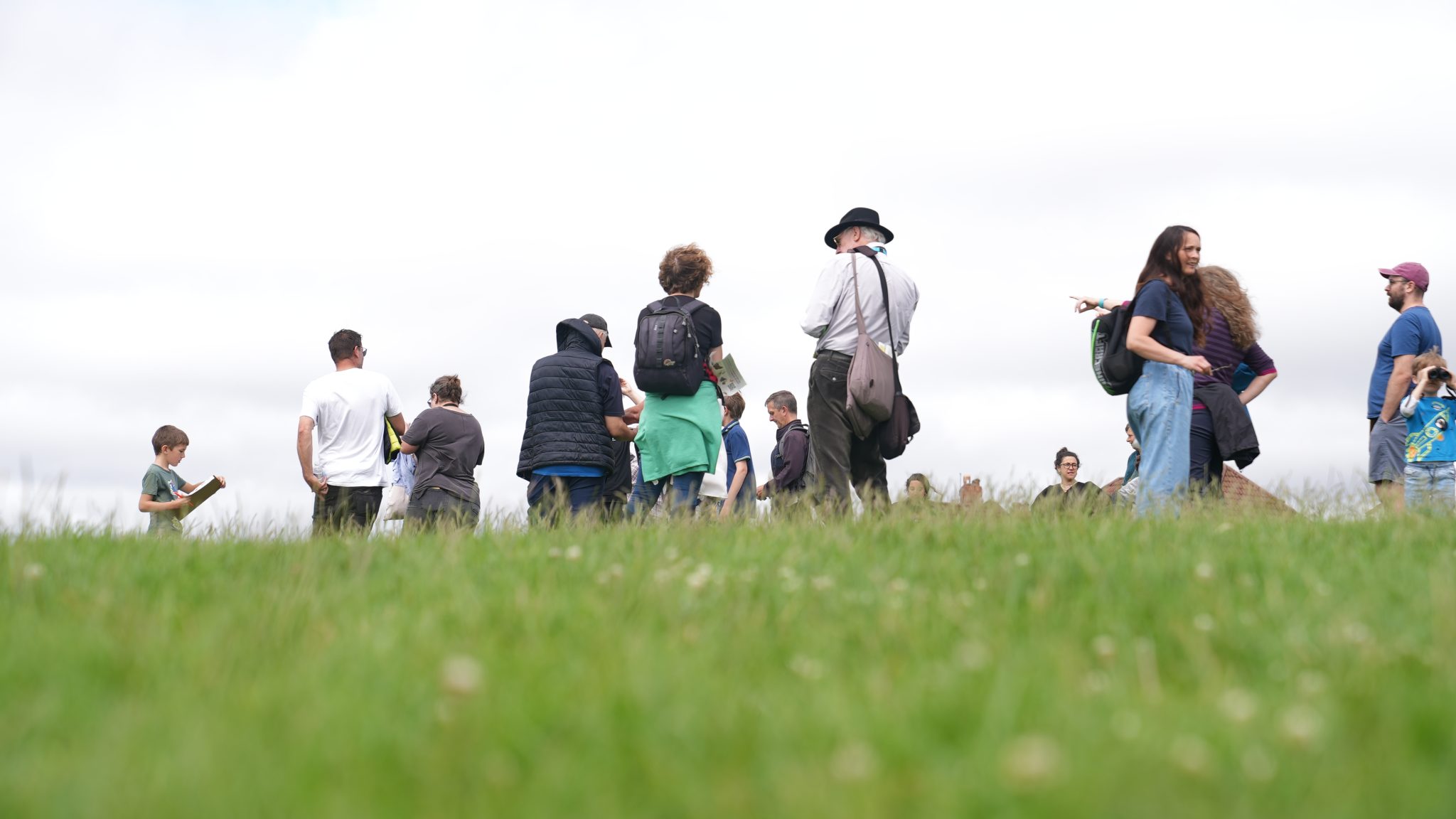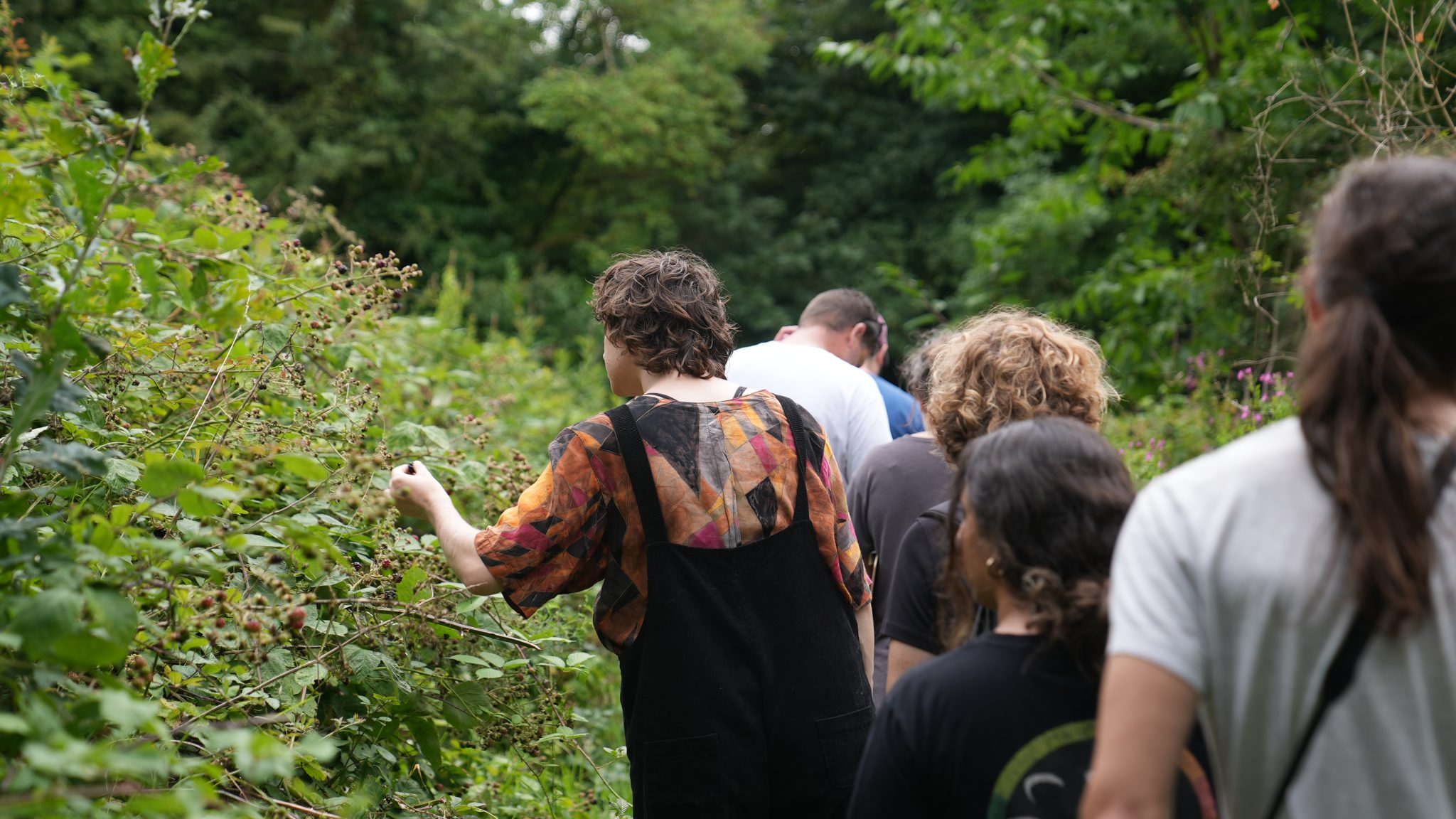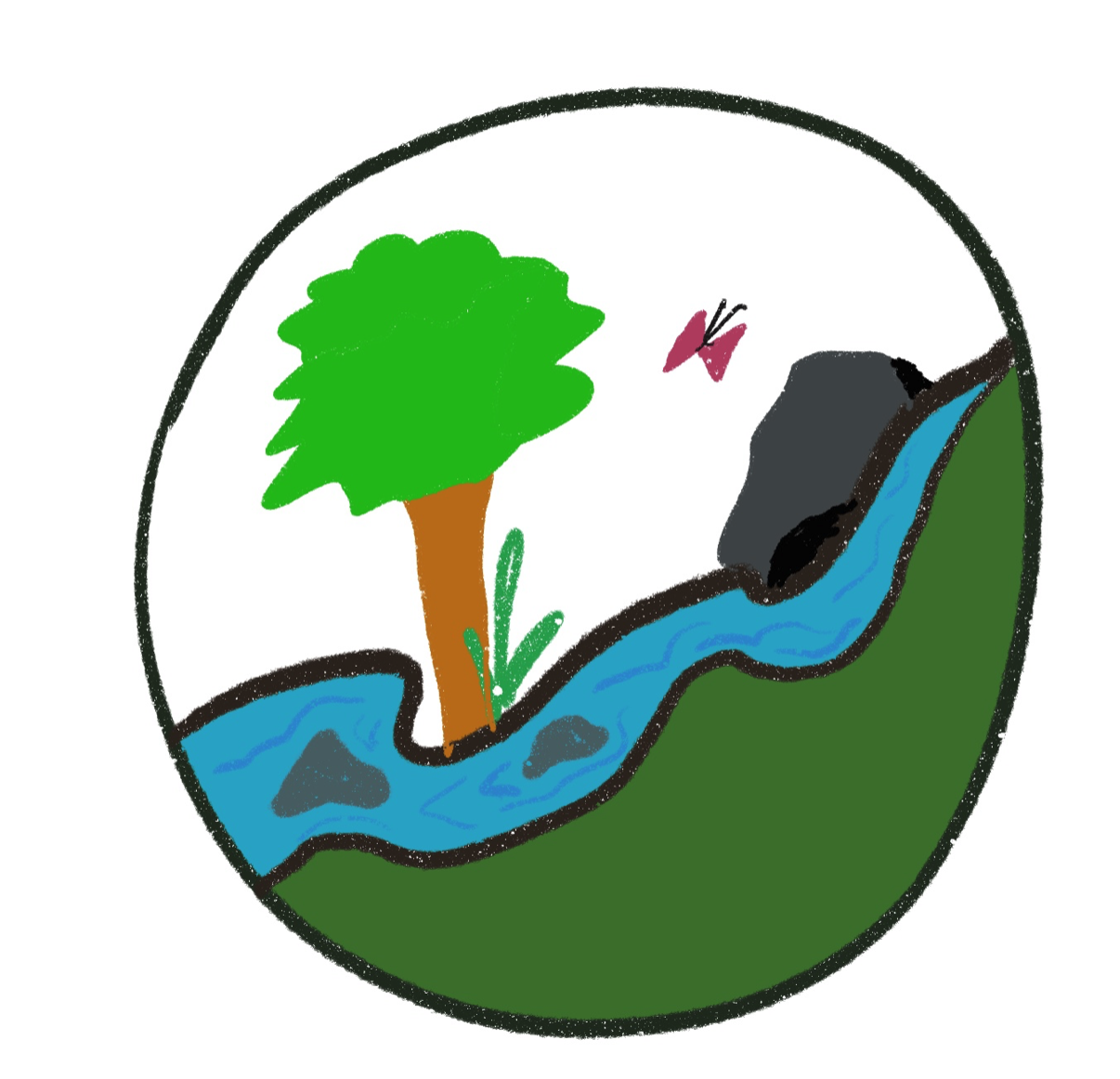Project Description:
To achieve greater collective climate action and increase biodiversity in green spaces, at a neighbourhood level, we need to interconnect green initiatives, researchers, residents, and others that care for the protection of biodiversity in Knowle West, South Bristol. Through creative methods & tools we will engage and connect local green initiatives. Through experimentation and collective learning we will develop citizen science tools, practices & technologies, laying the foundations for a Citizen Observatory and more citizen science in the future.
Project Type: Kick Starter
Theme: Cities for Life, Biodiversity
Mentor: Carolina Dopico
Doing neighbourhood science for climate action with arts, tech and care
Collect to Connect investigated nature connectedness and what enables or disables humans and other-than-humans to access and move between green spaces in Knowle West, South Bristol, UK.
Our ‘neighbourhood science’ initiative connected local people who care for wildlife and was designed to provide different entry points for people to contribute. We were particularly interested in including families with children, disabled people, women and residents with non-academic backgrounds.
To seed first ideas and get people on board, we reached out to local green initiatives and held a ‘Celebrating Nature’ event at a local community allotment during the summer. People expressed their interest, shared their questions and concerns on researching wildlife in Knowle West and inspired us to start with low-tech and DIY tech for sensing into nature. In the upcoming weeks, we visited green spaces in Knowle West together with community gardeners and ecologists from Avon Wildlife Trust. Together we identified meaningful directions our research could take to inform local plans and policies for climate mitigation.


Inspired by one of the first Impetus aperitivos we decided to integrate our activities in direct support of community groups and green initiatives. That also influenced our decision to give the Collect to Connect artist residency to a person who also works as a community organiser and climate activist themselves. Our Impetus mentor inspired us to run urban walks that could help address the social-ecological questions that were driving us in a tangible, accessible way. We worked with a local ecologist and co-designed three walks, as deep dives into local habitats and wild knowledge.
In early September we were ready to get people on board. With an open call, we invited people to join our initiative as ‘neighbourhood scientists’. We trained the co-researchers to investigate their neighbourhood with a social-ecological perspective and encouraged them to tell stories about topics they were most interested in. We introduced research as a form of storytelling and a way to practice mutual care.
Our ‘contract of care’ helped us to become conscious of how we relate to ourselves, each other and our ecosystem in ways that mean everyone feels comfortable, safe and able to actively contribute. Alongside our guided walks we encouraged neighbourhood scientists to spend time exploring where they live. We played with different tools for making and collecting data: The neighbourhood scientists were given a ‘nature diary’, a handmade folder to collect their fieldnotes, mappings, and sketches, and to organise their knowledge.
We invited everyone to use their phones to make soundscapes and take photos and videos during their explorations of urban wildlife habitats and pathways.

Applying qualitative research methods such as mapping and journalling gave freedom to let our study on nature connectedness be co-defined by the interests of co-researchers. Through creative and collective sense-making and storytelling we shared our learnings so everyone’s perspectives could be listened to and honoured.
This way, we can make climate action accessible for everyone, particularly those who often do not get a chance to contribute their knowledge, skills and solutions. Alongside building trustful relationships within the neighbourhood, we’ve started engaging with academics and local policymakers.
As a neighbourhood-based living lab, we see the project as the beginning of a long-term investigation that aims to shine a light on those knowledges that is not yet informing plans and policies for climate mitigation. In the future, we will invite those who can enable careful interventions towards ecological health in the neighbourhood.



